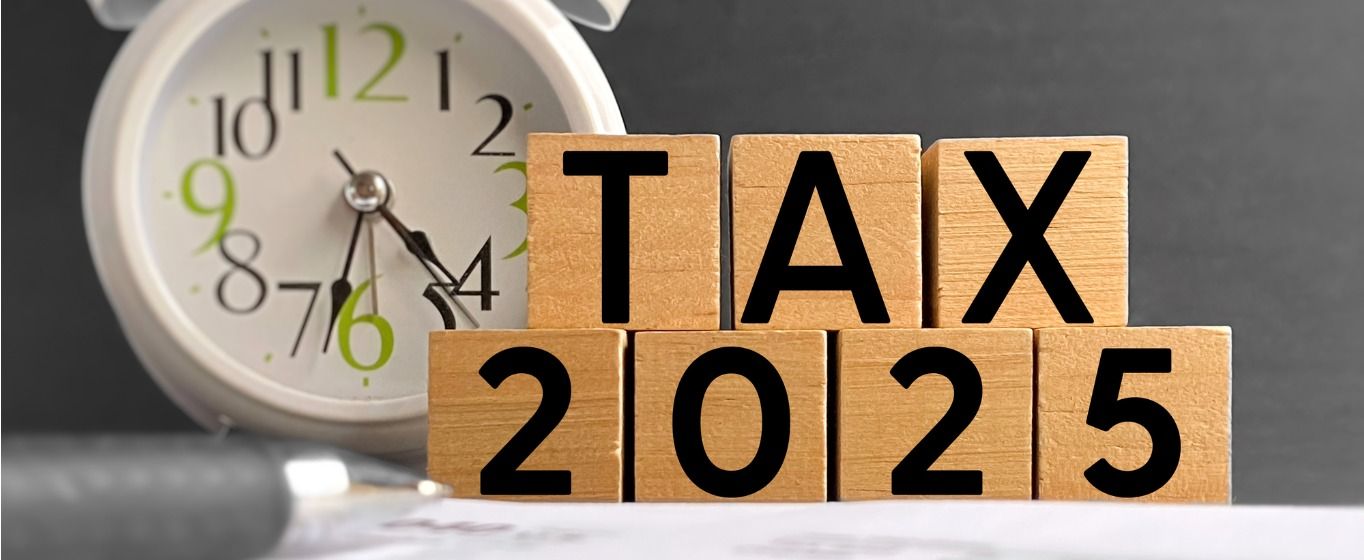With Tax Day Approaching, Here’s How to Get Organized

March 24, 2025
Tax season ends in just a few weeks, but you don’t need to press the panic button. Filing your taxes can feel confusing and tedious, but millions of Americans do it each year. By organizing your documents, understanding key tax rules, and planning ahead with basic research, you can reduce stress and make the process simpler.
Organize Your Documents
Before you can file your taxes, you have to gather all of your financial information. Necessary documents include W-2 forms from employers, 1099s for freelance or investment income, and statements related to mortgages, student loans, or charitable donations. If you’ve made any major life changes this year - such as buying a home, getting married, or having a child - you should also gather tax-related paperwork connected to these events. Compile all this in a secure place. By starting right now, you can make next year’s tax season easier, too.
Understand the Breakdown of Your Taxes
The government divides your taxable income into segments, or tax brackets, which determine your tax rate. This means that your federal tax rate will change based on your income. It’s important to account for local and state taxes, as well as taxes at the federal level.
You may have some tax-exempt income. Certain Social Security and veterans benefits, along with qualified Roth IRA distributions, are tax-exempt. You should review all your accounts and determine the current tax considerations¹ for each one.
Tax deductions and credits further adjust how your taxes are calculated. Deductions lower your taxable income, while credits directly reduce the amount you owe². Common deductions include student loan interest, medical expenses, and retirement contributions. Tax credits, such as the Child Tax Credit or the Earned Income Tax Credit, can provide you with additional savings. Confirm which deductions and credits may apply to you. This knowledge will help you maximize your tax benefits and reduce your bill.
Decide How You’ll File
There are several ways to file your taxes. You can use tax software, hire a professional³, or file for free⁴ through the IRS. If your financial situation is straightforward, there are many options to access low-cost consultations or file yourself. However, if you’re navigating financial changes, run a business, or need assistance understanding tax laws, working with a professional may be worth the investment. Whatever method you choose, filing electronically can speed up the process and reduce errors. There are several online services⁵ where you can ask questions and file your taxes in the same place. With so many options, find the one that works best for you.
Plan for Any Payments or Refunds
If you expect to owe taxes, set money aside or explore payment options through the IRS website. If you’re due for a refund, decide how you’ll use it. A tax refund is a unique opportunity to boost savings, pay down debt, or reach another financial goal.
Once you file your taxes, take a deep breath, and then take some small steps to organize for next year. Consider how your income and tax situation might change, and make notes. Compile all of this year’s documents in a secure file that you can access next spring. The more you plan and organize, the easier tax season will become over time.
Taking a proactive approach to Tax Day can help you file with confidence and avoid unnecessary stress. By gathering your documents early, understanding deductions and credits, choosing the right filing method, and planning for payments or refunds, you can navigate tax season with ease.
Remember, you need to pay your taxes by April 15. However, you can request an extension to submit your tax return by filling out a 4868 form⁶ before the deadline.
This information is for informational purposes only, is intended to provide general guidance, and does not constitute legal, tax, or financial advice. Each person's circumstances differ and may not apply to the specific information provided. You should seek the advice of a financial professional, tax consultant, and legal counsel to discuss your particular needs before making any financial or other commitments regarding the matters related to your condition.
Affinity is not an affiliate, nor do they endorse or recommend any of the referenced apps, websites, or companies and/or their products or services. Accordingly, Affinity takes no responsibility for the quality/reliability of the products or services offered by these apps, websites, or companies.
¹Retrieved from: https://www.investopedia.com/terms/t/tax_exempt.asp#:~:text=Tax%2Dexempt%20refers%20to%20income,shown%20for%20informational%20purposes%20only
²Retrieved from: https://www.irs.gov/credits-and-deductions-for-individuals
³Retrieved from: https://www.irs.gov/tax-professionals/choosing-a-tax-professional
⁴Retrieved from: https://www.irs.gov/filing/irs-free-file-do-your-taxes-for-free
⁵Retrieved from: https://www.hrblock.com/online-tax-filing/
⁶Retrieved from: https://www.irs.gov/pub/irs-pdf/f4868.pdf


